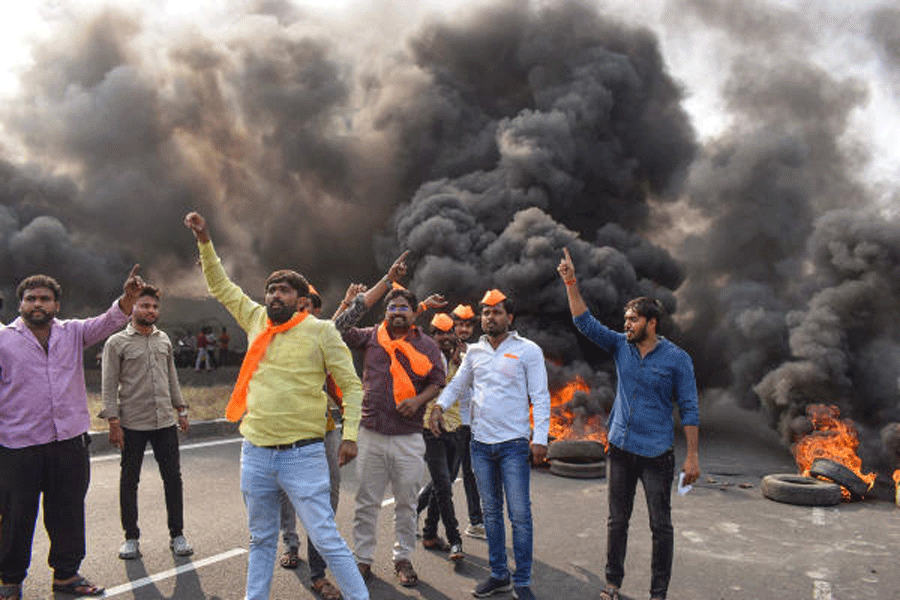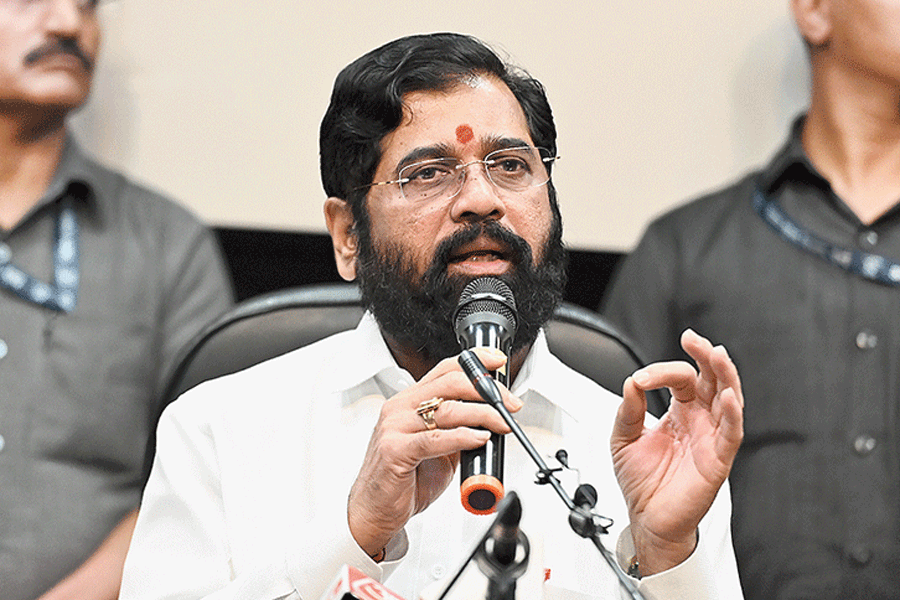Activists supporting the Maratha reservation have claimed that the community members were recognised as Kunbi community during the Nizam era and hence all Marathas should be treated as Kunbis under the OBC category.
The "Marathas and Kunbis inter-dined and intermarried freely," leading to blurring of lines between them, a pro-quota activist claimed.
This cultural amalgamation further strengthens the argument that Marathas and Kunbis were closely related, both socially and culturally, he said.
The agrarian Kunbi community already gets quota benefits in the Other Backward Classes (OBC) category.
Maharashtra Chief Minister Eknath Shinde on November 2 said every district collector will be asked to deploy 10 officials from the collectorate staff to find old records on the basis of which Kunbi caste certificates can be given to the eligible Marathas.
One of the demands of Maratha quota activist Manoj Jarange, who ended his indefinite fast after nine days on Thursday, is that they be given Kunbi caste certificates.
Talking to reporters on Friday, Jarange claimed that "Marathas and Kunbis are the same" and the Maratha community should be treated as Kunbi, which comes under the OBC category.
Jarange claimed that about 13,700 documents have been collected from the Marathwada region and submitted before a five-member committee led by retired judge Sandeep Shinde, appointed by the state government to decide the procedure for granting Kunbi caste certificates to Marathas in the Marathwada region.
Maratha Kranti Morcha coordinator Dr Sanjay Lakhe Patil on Saturday said the Maratha community members have historically been associated with farming, and claimed that they were referred as Kunbis.
Despite this, after the formation of Maharashtra, Marathas considered themselves as of a superior caste in the Marathwada region, he said. But, historical documents and records indicate that Marathas were originally identified as Kunbis and they were socially and economically backward, Lakhe Patel claimed.
The Maratha community members of Vidarbha and western Maharashtra are treated as Kunbis and taking benefit under the OBC category, he said.
Local NGO Maratha Foundation's president Avinash Kavhale, citing documents, claimed that in 1920, the Nizam administration conducted a comprehensive survey titled 'Castes and Tribes of the Nizam's Dominions', which identified the Maratha community as landholding and cultivating caste of the Deccan.
The Maratha community was a fusion of two significant tribes, represented by the Marathas and Kunbis, he further claimed.
The Marathas were divided into 96 'kul' (clans), each of which was further sub-divided into a number of surnames, he said.
The survey highlighted the gradual fading of distinctions between the high-class Marathas and the humble Kunbis, with no rigid demarcation between the two classes, he claimed.
The "Marathas and Kunbis inter-dined and intermarried freely," leading to blurring of lines between them, Kavhale said.
This cultural amalgamation further strengthens the argument that Marathas and Kunbis were closely related, both socially and culturally, he added.
Kavhale also referred to the book 'Marathwada under the Nizams 1724-1948' authored by P V Kate, saying it provides valuable insights into the socio-economic aspects of the Marathwada region.
The occupation of Kunbis during the Nizam reign was agriculture, he said.
The book noted that “the peculiar features of the cultivators or Kunbis of Marathwada were - simple in habits, kind by disposition and unambitious by nature. The Kunbi women were industrious and more energetic than men. They helped in household and farming activities," the activist said.
Except for the headline, this story has not been edited by The Telegraph Online staff and has been published from a syndicated feed.












